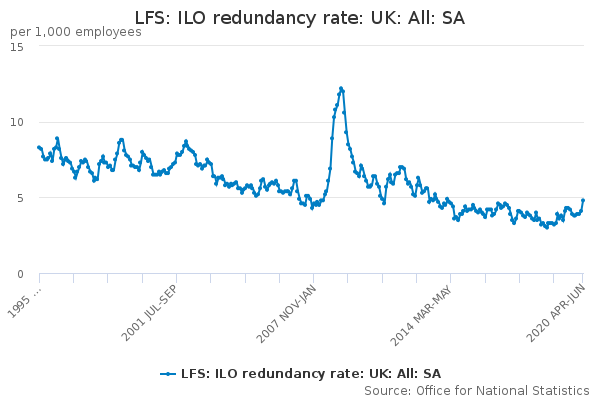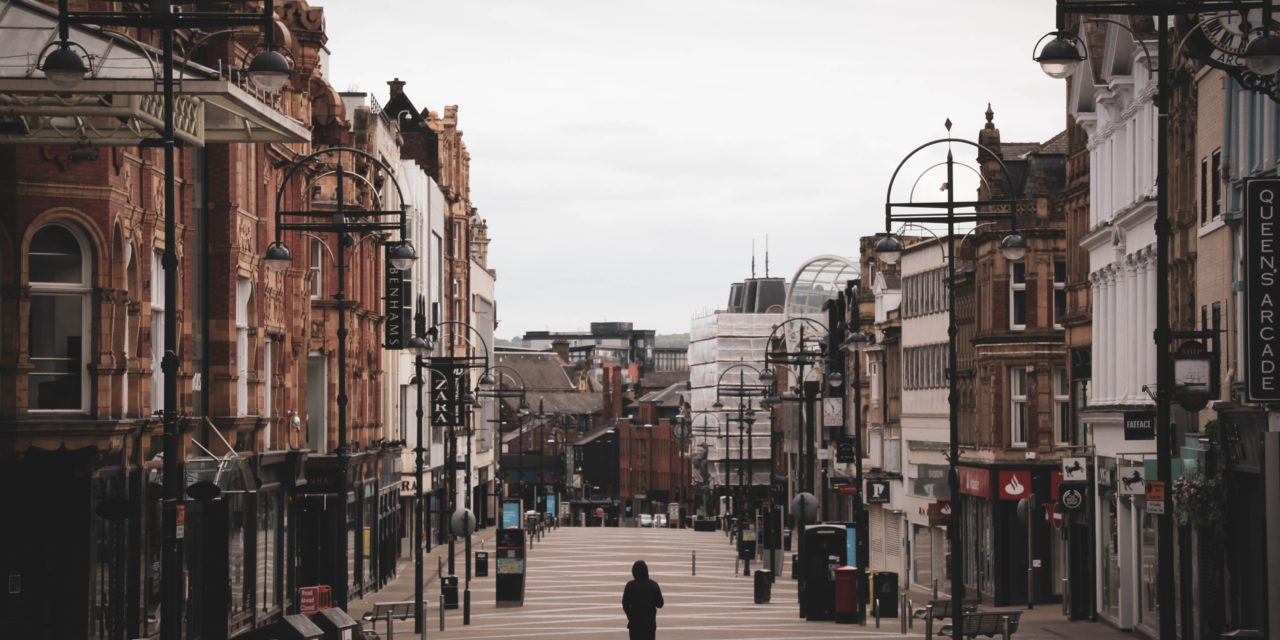The UK has officially entered the largest recession on record, the Office of National Statistics (ONS) confirmed today. The last two-quarters of the falling gross domestic product (GDP) in the UK show not only recession but also the steepest economy fall since the financial crisis in 2008.
Official figures indicate that the UK’s GDP shrank by 2.2% in the first quarter of the year and 20.4% in the second quarter, during a coronavirus peak. A recession is typically confirmed when the economy shrinks with a significant decline in GDP in two sequential quarters.
Hard times are here
As a direct result of prolonged pandemic lockdowns, the UK’s recession is worse than any of the G7 other nations. However, the Chancellor of the Exchequer, Rishi Sunak, told Sky News that despite current figures showing “hard times”, people should not lose hope.
“What I would say though is difficult decisions do lie ahead for all of us but I want to reassure people we will get through this and nobody will be left without hope and opportunity,” Chancellor Rishi Sunak said.
Shrinking economy consequences
A shrinking economy is likely to bring thousands of job losses and lower wages. Over the second quarter of 2020, wages have already dropped for the first time since 2001, predicting a further drop, the ONS reports.
READ MORE: UK Economy Declines by Over 20 Percent in April
Some major UK companies, such as British Airways, EasyJet, John Lewis, Harrods, Virgin Money and Next have already axed thousands of jobs or are currently in the process of potential closures and redundancies. But predictions show that plenty more layoffs will come once the government furlough scheme is closed at the end of October.

The future of recovery
According to the Bank of England, the UK’s economic drop is expected to reach less severe decrease of 9.5% this year, rather than the previous estimate of 14%. The economic rebound is faster than expected due to increased consumer spending since the lockdown measures were eased.
However, recovery of the steepest recession on record is likely to take longer. The Bank of England’s Governor, Andrew Bailey, told the BBC that recent figures should be read in caution. He said that even though “we have had a strong recovery in the last few months,” and the economy was ahead of May’s estimate, the figures are not necessarily “a good guide to the immediate future.”
- Exam Results Day Chaos and Anger as Students Discover Grades - 14th August 2020
- Hard Times Hit the UK as it Enters the Deepest Recession on Record - 12th August 2020
- Air Pollution is Killing Honeybees, Scientists Reveal - 11th August 2020






